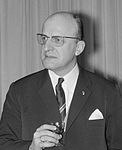| |||||||||||||||||||||||||||||||||||||||||||||||||||||||||||||||||||||||||||||||||||||||||||||
212 seats in the Chamber of Representatives | |||||||||||||||||||||||||||||||||||||||||||||||||||||||||||||||||||||||||||||||||||||||||||||
|---|---|---|---|---|---|---|---|---|---|---|---|---|---|---|---|---|---|---|---|---|---|---|---|---|---|---|---|---|---|---|---|---|---|---|---|---|---|---|---|---|---|---|---|---|---|---|---|---|---|---|---|---|---|---|---|---|---|---|---|---|---|---|---|---|---|---|---|---|---|---|---|---|---|---|---|---|---|---|---|---|---|---|---|---|---|---|---|---|---|---|---|---|---|
| |||||||||||||||||||||||||||||||||||||||||||||||||||||||||||||||||||||||||||||||||||||||||||||
 Chamber seat distribution by constituency | |||||||||||||||||||||||||||||||||||||||||||||||||||||||||||||||||||||||||||||||||||||||||||||
| |||||||||||||||||||||||||||||||||||||||||||||||||||||||||||||||||||||||||||||||||||||||||||||
 |
|---|
|
|
General elections were held in Belgium on 26 March 1961.[1] The result was a victory for the Christian Social Party, which won 96 of the 212 seats in the Chamber of Representatives and 47 of the 106 seats in the Senate.[2] Voter turnout was 92.3%.[3] Elections for the nine provincial councils were also held.
Prior to the elections, the centre-right government of the Christian Social and Liberal Party led by Gaston Eyskens pushed through austerity measures with a law known as the Eenheidswet or Loi Unique, despite heavy strikes in the preceding weeks, especially in Wallonia. After the elections, the Christian Democrats formed a new government with the Socialist Party instead of the Liberal Party, with Théo Lefèvre as Prime Minister.
- ^ Dieter Nohlen & Philip Stöver (2010) Elections in Europe: A data handbook, p289 ISBN 978-3-8329-5609-7
- ^ Nohlen & Stöver, pp309-311
- ^ Nohlen & Stöver, p291


